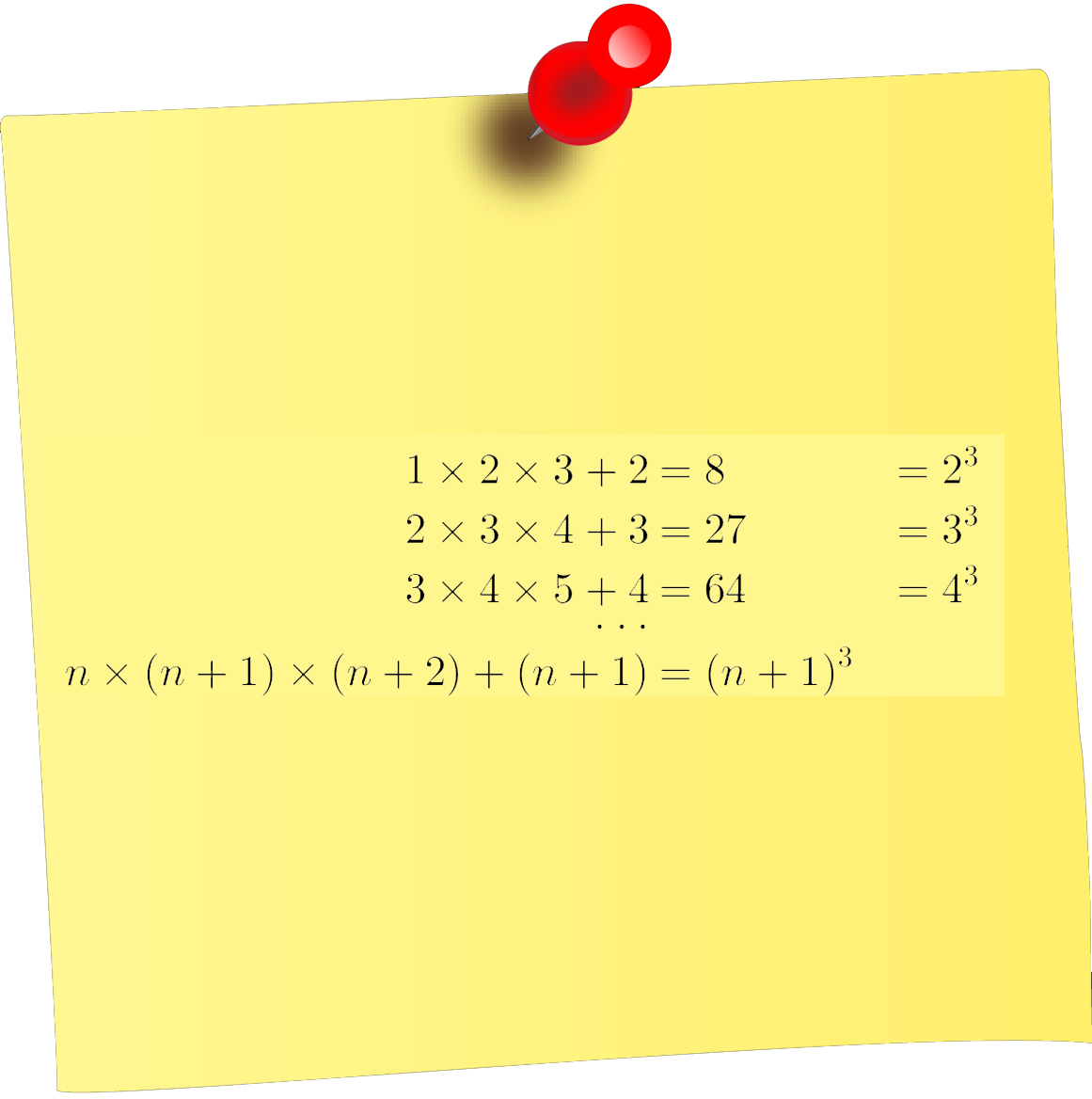Note
I found the note below in my pocket.

What follows from this?
A : If is a positive integer, then .
B : If is a positive integer, then .
C : If is a positive integer, then is a perfect square.
This section requires Javascript.
You are seeing this because something didn't load right. We suggest you, (a) try
refreshing the page, (b) enabling javascript if it is disabled on your browser and,
finally, (c)
loading the
non-javascript version of this page
. We're sorry about the hassle.
let n+1=k
(k-1)(k)(k+1)+k=k(k^2 -1) +k = k^3-k +k =k^3 k(k-1)(k+1)= k^3- k
Thus, k ∣ k 3 + k is the answer.
B and C are not answers as any a 2 is not in the note (other than 64).